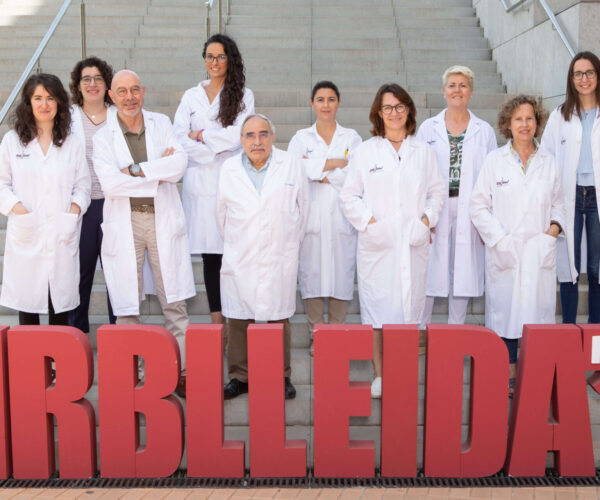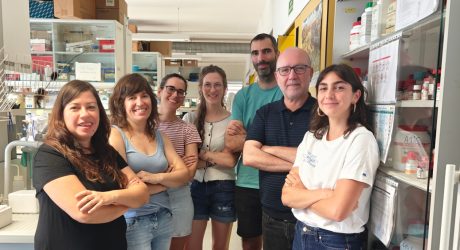A diet rich in green tea and cocoa may prevent neuromuscular deterioration associated with ageing
According to a study carried out in mice by researchers at the UdL and IRBLleida
The intake of green tea or cocoa could prevent neuromuscular changes associated with ageing, according to the results of a study led by researchers at the University of Lleida (UdL) and the Institute for Research in Biomedicine of Lleida (IRBLleida). Specifically, the consumption of flavonoids (a group of nutrients found in fruits, vegetables and spices) from green tea and cocoa was able to significantly increase the survival rate in old mice and prevent some regressive structural changes associated with ageing. The research has been published in the journal Aging.
Sarcopenia, the progressive loss of muscle mass and power due to ageing or sedentary lifestyles, is considered to be the main factor in the deterioration of physical performance in the elderly. This situation has a negative impact on quality of life, increases the risk of disability, injury and mortality, and also places a burden on the healthcare system. For this reason, the Experimental Neuromuscular Pathology research group, led by Jordi Calderó, has studied the changes that the neuromuscular system undergoes during ageing and the impact of diets enriched with flavonoids derived from green tea and cocoa on the motor deterioration that occurs with age.
The research, in collaboration with the Institute of Neurosciences of the Universitat Autònoma de Barcelona, the Biomedical Research Network Centre for Neurodegenerative Diseases, the University of Granada and the pharmaceutical company Abbott, also concludes that the association of flavonoid supplementation with regular physical exercise needs to be taken into account in therapy to treat sarcopenia.
“Further research is needed to find out whether higher doses of flavonoids are needed and whether long-term interventions can help maintain or even restore adequate motor function during the ageing process,” said Jordi Calderó, professor at the UdL and head of the Experimental Neuromuscular Pathology research group. This research has been possible thanks to the financial support of the pharmaceutical company Abbott and also a grant from the Ministry of Science, Innovation and Universities with co-financing from the European Regional Development Fund (RTI2018-099278-B-I00).
Research article: Graso S, Blasco A, Mòdol-Caballero G, Tarabal O, Casanovas A, Piedrafita L, Barranco A, Das T, Rueda R, Pereira SL, Navarro X, Grieta JE, Calderó J. Beneficial effects of dietary supplementation with green tea catechins and cocoa flavanols on aging-related regressive changes in the mouse neuromuscular system. Aging (Albany NY). 2021 Jul 28;13(14):18051-18093. doi: 10.18632/aging.203336. Epub 2021 Jul 28. PMID: 34319911; PMCID: PMC8351677.
Text: Communication and Press IRBLleida




